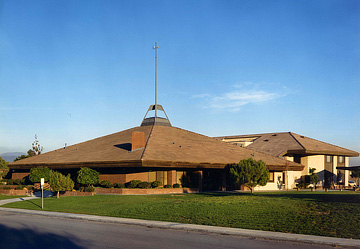I have come to the end of this series on what to do if someone sins against you. I have done my best to interpret the teaching of Jesus on this subject with accuracy. I’m sure I have made some mistakes along the way. But I believe I have rightly rendered the basic sense of Jesus’ teaching.
Jesus’ basic answer to the question, “What should I do if someone sins against me?” is pretty simple (Matthew 18:15-18). If I were to paraphrase Jesus’ instructions, I’d put them this way:
Go directly to the person who sinned against you and privately point out the fault. Do this with the hope of fostering of reconciliation. If this one-on-one approach doesn’t work, then get help from a few others. If this doesn’t work, let the church help. But always work in the direction of repentance, forgiveness, and reconciliation.”
Though the actual teaching of Jesus is not hard to understand, it is very hard to put into practice. At least that seems to be the case in my experience, both personal and pastoral. Most of us are not comfortable with the idea of going directly and privately to someone who has wronged us. So we do something else, usually gossiping to others or doing nothing at all. Sometimes we piously wait for the “sinner” to approach us: “I’m not going to him because he sinned against me. I’m waiting for him to come and say he’s sorry. Then I’ll consider forgiving.” Sounds typical. Sounds sensible. But it’s not what Jesus told us to do. Not at all. (Photo: The sanctuary of Irvine Presbyterian Church, where I served for sixteen years.)
In my experience as a parish pastor, I saw just about every possible way to disobey the plain teaching of Jesus. When church were wronged by others, their first inclination was just to try and ignore it. But if the offense was significant, this feigned ignorance led to a permanently damaged relationship, and therefore a permanently damaged church. Plus, the one who had been wronged was plagued by unhealthful bitterness, while the one who did the wrong had no chance to grow.
Those who found ignoring the offense unsatisfactory would often try to find solace in gossip. They’d tell their friends what happened to them, looking for pity and justification. In other cases, the wronged person would contact the offender, but in some sort of public mode. At times, these confrontations would even take place on the church patio after a worship service. More commonly in recent years, they would be played out in emails copied to lots of other people.
I realize that I’m sounding pretty negative here about my former church. So I should add that I witnessed and participated in many positive examples of putting the teaching of Jesus into practice. Most of the time, however, I never saw this happening because it took place in private, just as it should have.
I should also say, in defense of my former church, that I don’t think we were especially worse than other churches. Irvine Presbyterian Church is a wonderful community of committed disciples of Jesus. I think we were pretty typical when it came to following Matthew 18:15-18. There were many members who did in fact put Jesus’ teaching into practice. But the plain truth is that most of us don’t like direct confrontation with others, so we avoid it like the plague. Let me be honest here and say that I hate confrontation as much and probably more than most people. I dislike going to someone who has wronged me more even more than I dislike hearing from others that I wronged them. But I have felt compelled by the teaching of Jesus to do what does not come naturally to me. Sometimes the result has been unhappy. But in dozens of instances, the outcome of my sheer obedience has been repentance, forgiveness, and reconciliation.
In my next and final post in this series, I’ll share an illustration of this positive result and wrap up with a few final observations.

